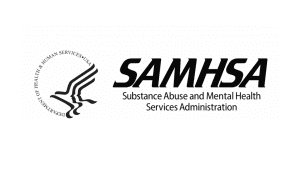One Way to Treat Treatment-Resistant Depression (TRD)

Living with major depressive disorder (MDD) affects every aspect of your life including how you feel, how you think, and how you behave. It can lead to a variety of emotional, physical, and social problems. MDD may impact your ability to do normal day-to-day activities including getting out of bed, brushing your teeth, and building fruitful relationships with people you love. While MDD has the ability to impact all aspects of your life, it’s important to remember that it does not define you and there are ways to get the help you need to improve your functioning.
If you, or someone you love, live with major depressive disorder, have tried therapy, medications, or a combination of both, and found no relief of symptoms, it’s possible that you may have something called ‘treatment-resistant depression’ (TRD). In spite of its name, there are, in fact, ways to treat TRD. In this post, we’ll talk about TRD and then discuss some of the treatment options available that may improve your wellness.
What is Treatment-Resistant Depression (TRD)?
There is nothing more frustrating or disappointing than living with depression, making efforts to treat it through the help of medication, and discovering that your symptoms have remained unchanged. If this is the case for you, you may experience hopelessness, distress, or a variety of other emotional responses. These are all very normal and it is possible that you may have what is known as treatment-resistant depression. The Mayo Clinic says this about treatment-resistant depression,
“If you’ve been treated for depression but your symptoms haven’t improved, you may have treatment-resistant depression. Taking an antidepressant or going to psychological counseling (psychotherapy) eases depression symptoms for most people. But with treatment-resistant depression, standard treatments aren’t enough. They may not help much at all, or your symptoms may improve, only to keep coming back.” [1]
It is important to mention that failing to see results with an antidepressant doesn’t mean that you have TRD. You may not have given your medication long enough to take effect, you could be on the wrong type of antidepressant, or your dosage could be off. Before talking to your doctor about TRD, the Mayo Clinic goes on to recommend the following medication options:
- Give your current medications more time. Antidepressants and other medications for depression typically take four to eight weeks to become fully effective and for side effects to ease up. For some people, it takes even longer.
- Increase your dose, if indicated. Because people respond to medications differently, you may benefit from a higher dose of medication than is usually prescribed. Ask your doctor whether this is an option for you — don’t change your dose on your own as several factors are involved in determining the proper dose.
- Switch antidepressants. For a number of people, the first antidepressant tried isn’t effective. You may need to try several before you find one that works for you.
- Add another type of antidepressant. Your doctor may prescribe two different classes of antidepressants at the same time. That way they’ll affect a wider range of brain chemicals linked to mood. These chemicals are neurotransmitters that include dopamine, serotonin and norepinephrine.
- Add a medication generally used for another condition. Your doctor may prescribe a medication that’s generally used for another mental or physical health problem, along with an antidepressant. This approach, known as augmentation, may include antipsychotics, mood stabilizers, anti-anxiety medications, thyroid hormone or other drugs.
- Consider pharmacogenetic testing. These tests check for specific genes that indicate how well your body can process (metabolize) a medication or how your depression might respond to a particular medication based on additional factors. Currently, pharmacogenetics tests are not a sure way to show if a medication will work for you, but these tests can provide important clues for treatment, particularly in people who have many side effects or have had poor results with certain medications. These tests are not always covered by insurance.
However, if you try these medication options and still see no results, you may in fact have treatment-resistant depression. Talk to your doctor about other options including SPRAVATO treatment.
SPRAVATO is a Treatment for TRD
One treatment option for adults with TRD is SPRAVATO. SPRAVATO is a prescription medicine, used along with an antidepressant taken by mouth to treat:
- Adults with treatment-resistant depression (TRD) related to MDD
- Depressive symptoms in adults with major depressive disorder (MDD) with suicidal thought or actions [2]
When SPRAVATO was evaluated for safety and prescribed in combination with an antidepressant, it showed a drastic improvement in depression symptoms for those experiencing TRD. For those who continued treatment, studies showed that participants’ depression symptoms were 70% less likely to return. [3] While SPRAVATO treatment has proven positive results, you should discuss all possible side effects with your doctor when considering treatment.
Possible Side Effects
- Sedation and dissociation.
- Abuse and misuse.
- Increased risk of suicidal thoughts and actions.
- Spinning sensation
- Decreased feeling of sensitivity (numbness)
- Feeling anxious
- Lack of energy
- Increased blood pressure
- Vomiting
- Feeling drunk
- Feeling very happy or excited
While living with treatment-resistant depression can be challenging, it is important to remember that there are treatment options available. If you are living with TRD, it may be time to discuss SPRAVATO with your doctor to see if it may be the right fit for you. Please visit the SPRAVATO website to learn more and to read a full list of important safety information.
Starting Point Behavioral Healthcare is the only SPRAVATO approved treatment site in Nassau County, FL. We offer a range of programs and treatment services for First Coast residents including individual therapy, family therapy, medication management, and more. To learn more about how to access services at Starting Point, please click here.
[1] “Treatment-Resistant Depression.” Mayo Clinic, Mayo Foundation for Medical Education and Research, 10 Apr. 2021, www.mayoclinic.org/diseases-conditions/depression/in-depth/treatment-resistant-depression/art-20044324.
[2] “SPRAVATO®.” SPRAVATO® (Esketamine), 21 Sept. 2020, www.spravato.com/.
[3] “SPRAVATO® (ESKETAMINE) CIII Nasal Spray: The First and Only N-Methyl D-Aspartate (NMDA) Receptor ANTAGONIST Approved in Conjunction with an Oral Antidepressant for the Treatment of Adults with Treatment-Resistant Depression.” Psychiatrist.com, 28 June 2021, www.psychiatrist.com/esketamine-ciii-nasal-spray-treatment-resistant-depression/entries/148/.
Posted In:
Like this post? Don't forget to share it!
MORE RECENT POSTS



